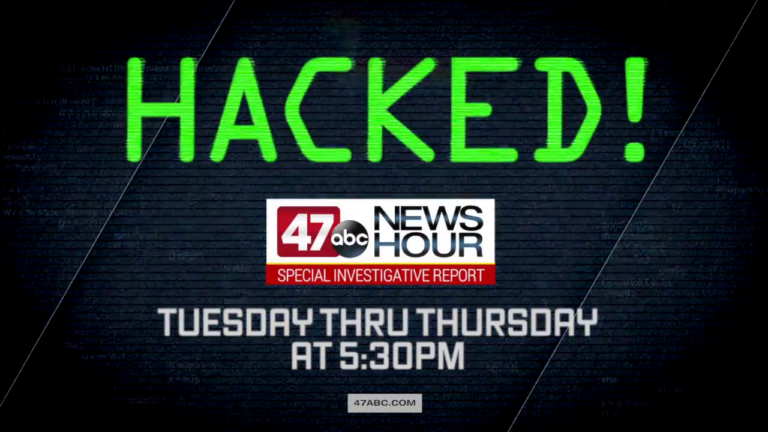HACKED! Part One: A crash course on cyber crimes

Cyber hacks. They’re becoming more prevalent in our ever-changing, high-tech world. Threatening our finances, technology, and businesses.
“A hack is an unauthorized access to a computer or a system or a network,” said James Collins, Delaware’s Chief Information Officer, “It’s someone accessing a computer system to obtain information, to damage that system, to try to get personally identifiable information where they can open up credit accounts,”
Commonly during a hack, skilled cyber-criminals would attack large computer networks and servers. But with the breakthroughs in mobile technology over the years, anyone, anywhere can be a target. “All of these mobile devices are taking over.” and “we’re seeing the threats, the attack vectors change to be able to target the mobile users as opposed to the big hardware, the big servers, the big mainframes that are out there.” Elayne Starkey, the Chief Security Officer at the Delaware Department of Technology and Information.
Unfortunately, Collins tells us common consumers aren’t the only ones at risk. “Not only in small businesses, but in larger businesses and in governments there needs to be a greater appreciation for how dependent we are on technology,”
We’re told it costs companies about $154/record in a breach. Recently, we saw the havoc that data breaches caused at national chains like Staples, Target, and Home Depot. Because of their national presence those companies were able to rebound and stay afloat. Something that Collins says would be a bit harder for small businesses. As for why certain attacks are directed towards specific companies or individuals, that may vary by hacker. They either do it to steal information to commit fraud or other crimes. To protest government decisions. Or for sport. Collins said, “Some people just do it just to see if they can, so they can brag about it and say ‘hey I got into the system and they don’t actually steal anything,”
However, some hackers use their skills for good. They may block from stealing data, and other penetration hackers assist businesses government agencies and military branches in preventing hacks. Starkey told 47 ABC, “organizations use these folks to protect their own networks. They hire them, they ask them to try to break into their networks, and it’s all a part of a coordinated test to find out where the weaknesses are.”
According to Collins, 62% of data breaches can be credited to malicious outsiders. He says by handling personal information responsibly you could help prevent another 22%. Collins recommends being conscious of the use of social security numbers, birthdays, and addresses or you could find yourself in a virtual struggle with real life consequences.
For tips on how to protect yourself online and other helpful resources, visit the Delaware Department of Information and Technology website.


